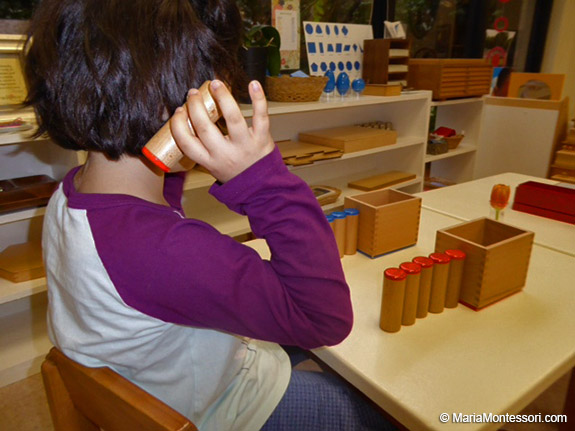If you are a parent of a young child who attends school, you have probably been told not to ask your child about their day at pick-up. So many parents ask me, why is that? It seems so natural to ask the ones you love about their day when you come back together. It actually seems like it may be a part of helping a child adapt to his culture through grace and courtesy. So why are we asked to refrain from the questions?
First, your child who is younger than five years old lives at the moment. This means that when you come to pick him up from school, he is enjoying the moment of seeing you again and may be full of gratitude for that moment. If at that moment, you ask, ” How was your day?” Or ” what did you do today?” he may be caught off guard and unable to answer your question. In his mind, he is enjoying the present and not recapping the day in his head. The ability to recap the day is a function of the reasoning mind of an older child, not the absorbent mind of your young child.
Next, children who feel compelled to answer their parents when asked, “Did you do any work today?” May feel unneeded pressure to perform. If he doesn’t have an answer at that very moment he may come up with an activity he remembers, a person he recalls, or a staple answer that has seemed to work in the past: “Snack.”
Also, because many children don’t imagine each moment of their time at school to be nearly as significant as their parents see it, they don’t always share the details. As a parent, you may find it very interesting that they practiced sandpaper letters and learned four new sounds today. However, your child may just see it as another good day of work.
So, as parents, how do we connect with our children at the end of the day? How do we learn about the details of the day without putting them on the spot or forcing them to come up with something?
We model.
We model conversations about our day. This can be done with another adult or an older child, but this can also be done as an individual. Imagine you pick up your child from school. You see his sweet face, embrace him, and say, “Hello, it is so nice to see you.” He may say something similar. Without asking the teacher about the details of the day and without distractions from other parents or your phone, your focus is on your relationship with your child as the two of you walk together to the car or possibly walk all the way home.
On your way home, you wait patiently, offering your child time to open up if he chooses. If he too remains silent, possibly contemplating the day, you can offer a description of your day. “I was working in my office today. I organized some papers and called a client.” Pause. Your child may have a question for you. Or, he may share something about his day. Continue to refrain from questions. You may want to offer another sentence like, “I enjoyed the salad I packed for my lunch.”
Making statements such as this will help your child understand what might be notable from his day. Over time with this modeling approach, your child will start to offer his own tidbits about his day and a pattern of exchange will emerge. Letting him develop his own ideas in his own time will make the conversation that much more meaningful for both of you.
